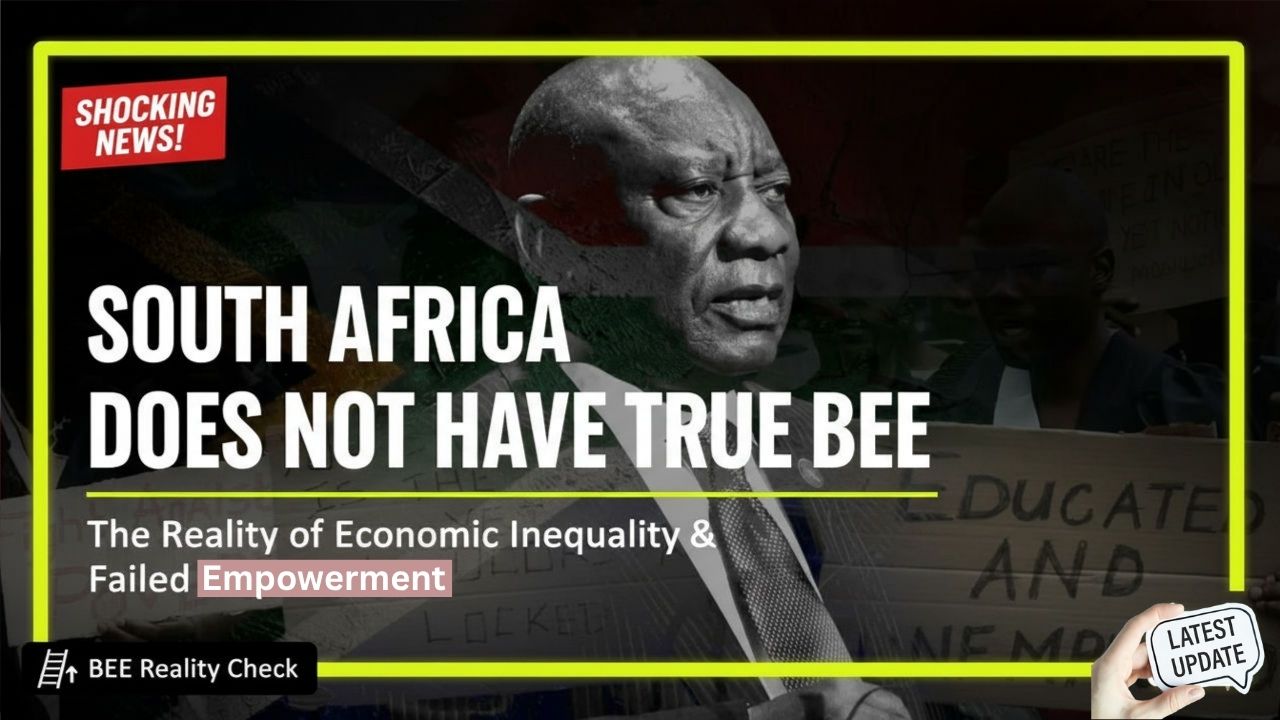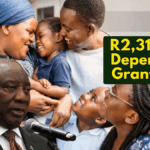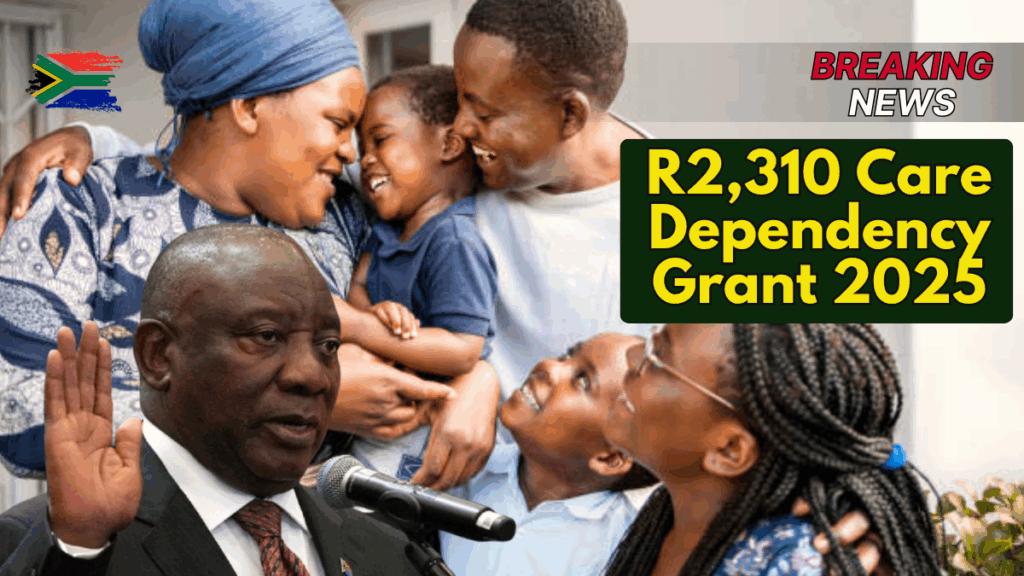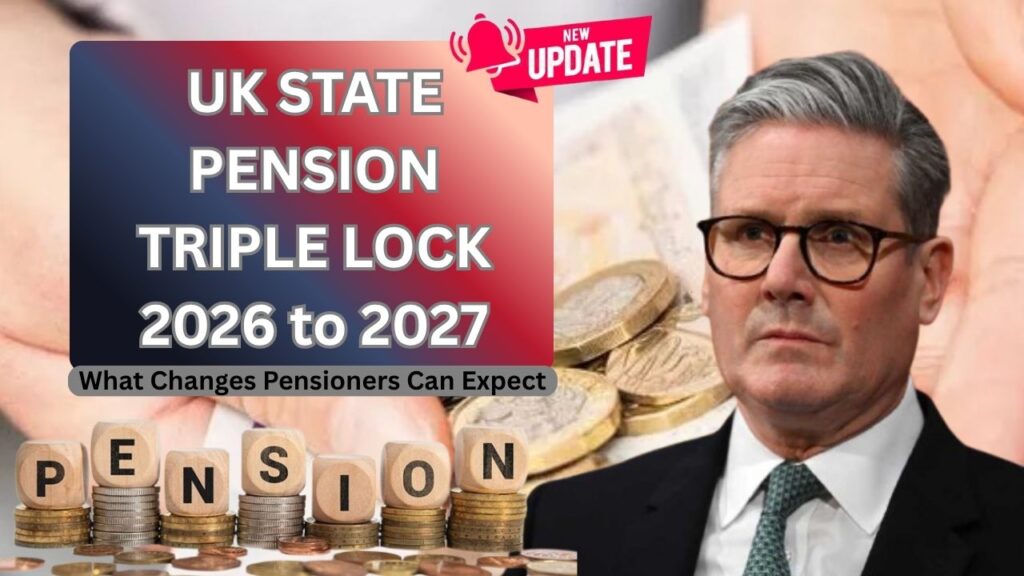The national conversation about Black Economic Empowerment (BEE) has intensified. Prominent voices, including economist Dawie Roodt, argue that South Africa does not have “true” black empowerment because mass unemployment, poverty, poor service delivery, and uneven access to quality education still prevail. Critics contend that equity transactions and elite shareholding deals have not translated into broad-based upliftment for most households. Others, however, maintain that BEE remains essential to redress historic exclusion and that abandoning race-based transformation would reverse progress made in corporate leadership, procurement, and professional representation.
Table of Contents
This rewritten guide summarises the main arguments, outlines new policy proposals such as the Democratic Alliance (DA) Economic Inclusion for All Bill announced on 20 August 2025, and presents the African National Congress (ANC) response that BEE is “here to stay.” It closes with practical FAQs to clarify how the debate affects workers, firms, and citizens.
South Africa and “True” Black Economic Empowerment in 2025 Quick Summary Table

Item |
Details |
|---|---|
Core debate |
Whether current BEE delivers broad empowerment or primarily benefits connected elites |
Key critique (Roodt) |
Without food security, quality schooling, safety, electricity, and water, there is no “true” empowerment |
Poverty lens |
High unemployment and child malnutrition undermine claims of broad upliftment |
DA proposal (20 Aug 2025) |
Economic Inclusion for All Bill: shift from race-based procurement to needs- and outcomes-based empowerment |
ANC position |
BEE and transformation laws remain central; amendments possible but substance stays |
Practical stakes |
Rules for procurement, ownership, skills development, and enterprise support; compliance duties for firms |
What to watch |
Parliament handling of any reform bill; enforcement against fronting; targeting of poverty and jobs |
Official site |
What Critics Mean by “No True BEE”
Economist Dawie Roodt argues that empowerment must first address basic living standards food security for children, reliable water and electricity, safe communities, and world-class education. He contends that share transfers to a narrow group do not equate to empowerment when large numbers of black households remain poor or unemployed. In this view, BEE should be measured against household outcomes nutrition, schooling quality, employability, and income mobility rather than the number of ownership deals concluded or the value of procurement spent.
Roodt critique aligns with political economist Moeletsi Mbeki longstanding argument that parts of BEE can concentrate benefits among politically connected elites and may deter entrepreneurial emergence, if incentives reward deal-making over new wealth creation. The allegation that BEE encourages fronting and feeds off existing firms rather than building productive capacity remains a key theme among critics.
The Alternative on the Table: DA “Economic Inclusion for All Bill”
On 20 August 2025, the Democratic Alliance (DA) announced its Economic Inclusion for All Bill, positioned as a replacement for race-based BEE rules in public procurement. The party frames the proposal as needs-based, targeting poverty, unemployment, job creation, skills development, and measurable social impact rather than race categories. The DA links its proposal to the Public Procurement Amendment Act of 2024, seeking to repeal race-based preferential provisions and replace them with outcomes-based incentives.
Key tenets highlighted by the DA:
- Inclusion targeting poverty, not political connections.
- Procurement scoring aligned to job creation, skills transfer, and poverty reduction.
- Transparency and enforcement to curb corruption and fronting.
The DA argues that unemployment gaps by race, persistent poverty, and past corruption scandals show that rules must shift from identity to impact.
The ANC Response: BEE Is Here to Stay
The ANC rebuttal is direct: BEE and transformation legislation are not negotiable as the foundation for redress and equity after apartheid. Party spokespeople argue that many black professionals and women have advanced in corporate and public leadership through transformation policies, and that rolling back race-based rules would slow or reverse gains. While amendments may refine implementation, the substance race-based empowerment remains intact. The ANC stance is that parliament is the proper forum for any proposal, and that current BEE policies remain in force until changed by law.
What “True Empowerment” Would Require, According to Critics
Roodt and others propose a back-to-basics empowerment model focused on universal capabilities:
- Child nutrition and early childhood development funding to break intergenerational poverty.
- Quality public education and skills pipelines tightly coupled to labour demand.
- Safe, serviced communities with reliable electricity and water, enabling small enterprise growth.
- Rule of law and clean procurement, to expand opportunities beyond the politically connected.
The logic is simple: broad human capital and stable services empower millions, while elite ownership deals empower a few.
How This Debate Affects Businesses and Workers in 2025
- Businesses must still comply with existing B-BBEE codes and procurement rules until (and unless) parliament amends the law. That includes ownership, management control, skills development spend, enterprise and supplier development, and socio-economic development points.
- Public procurement bids continue to reflect transformation requirements set by current regulations and directives.
- Workers and jobseekers should track whether policy shifts introduce new, skills-linked incentives, internships, or enterprise-support programmes that broaden access to opportunity.
- Fronting enforcement remains a critical area to watch; tighter enforcement can improve credibility even within current rules.
What to Watch Next
- Parliamentary process for any bill that seeks to replace race-based procurement with needs-based scoring.
- Targeting and measurement: whether reforms focus on jobs created, skills gained, and poverty reduction rather than form-over-substance compliance.
- Municipal and SOE procurement: their responsiveness to any amended rules, and their internal capacity to enforce clean, outcomes-based tenders.
- Education and skills budgets: whether policy and spending shift in line with calls for foundational empowerment.
Frequently Asked Questions (FAQs)
1) Is BEE being scrapped in 2025?
No. B-BBEE remains in force. Any change requires parliamentary action. Proposals may be debated, but the current framework applies until lawfully amended.
2) What is the DA proposing?
A pivot to needs-based, outcomes-driven procurement that rewards job creation, skills development, and poverty reduction, rather than race-based preferences.
3) What is the ANC position?
The ANC says BEE is here to stay. Amendments may refine policy, but the core race-based approach will remain to ensure transformation.
4) Does BEE only benefit elites?
Opinions differ. Critics say benefits concentrate among connected elites; supporters cite rising numbers of black executives, women leaders, and transformed supply chains as evidence of progress.
5) If the law changes, how soon would businesses need to adapt?
Any new law or regulations would include transition timelines. Until then, firms should maintain full compliance with the current B-BBEE framework.
6) How can empowerment be measured better?
By tracking household outcomes (employment, income growth, skills, firm formation) and procurement impact metrics (jobs created, skills uplifted, SMEs grown), not just paper compliance.
7) What about fronting?
Fronting is illegal. Companies found fronting face penalties and debarment. Stronger enforcement is widely viewed as essential to credibility.
8) How does this debate affect SMEs?
SMEs may benefit from clearer, anti-corruption procurement, faster payments, and skills/enterprise support tied to tangible results, regardless of the policy model chosen.
9) What matters most for “true empowerment,” according to critics?
Nutrition, schooling quality, basic services, safety, and skills the foundational capabilities that let people participate in the economy.
10) Where can I check official guidance or raise concerns?
Consult the B-BBEE Commission for compliance guidance and enforcement information.
Conclusion
South Africa empowerment debate in 2025 turns on a crucial question: What counts as real empowerment? Critics argue that without nutrition, education, safety, and dependable services, equity deals cannot transform daily life for the majority. Reformers want procurement to reward jobs, skills, and poverty reduction; defenders of current BEE insist that transformation requires race-based levers to correct historic injustice. The policy battlefield is therefore shifting from form to outcomes. Whatever parliament decides, the consensus across most positions is clear: genuine empowerment must be measurable at the household level through jobs, skills, and dignity far beyond boardroom transactions.
For More Information Click HERE











